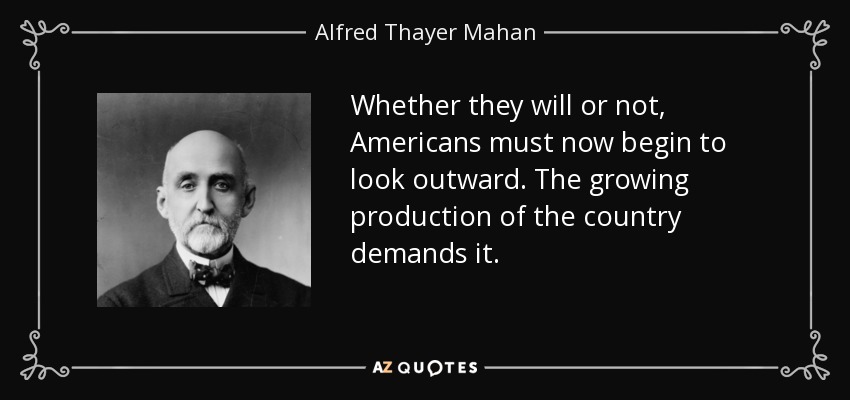
Sugar producers in the lower South viewed the potential absorption of Puerto Rico, Cuba, and the Philippines as an economic threat.

A sizeable number of Americans feared that overseas expansion would be too costly, would bring non-white peoples into the American nation, and would deviate from the traditional isolationist stance of the nation's foreign policy. The quest for empire was not a universally accepted project, however. These individuals looked beyond American shores for new frontiers, world markets, and overseas colonies. Turner's lectures and Mahan's writings greatly influenced political leaders like Theodore Roosevelt and Henry Cabot Lodge. He asserted that no modern nation could be a great nation without a powerful navy, a superior merchant fleet, and overseas colonies. For example, Rear Admiral Alfred Thayer Mahan preached the doctrine of American expansionism in twenty books and numerous widely quoted essays. Many Americans interpreted this to mean that new frontiers were integral to national greatness.

history in which no frontier existed for them to conquer. Historian Frederick Jackson Turner had warned Americans, in his much-reproduced speech delivered at the 1893 Chicago World's Fair, that the new century would be the first in U.S.

As the new century loomed just over the horizon, the time seemed ripe for many Americans to look beyond their continental borders to a place of destiny in the world.


 0 kommentar(er)
0 kommentar(er)
